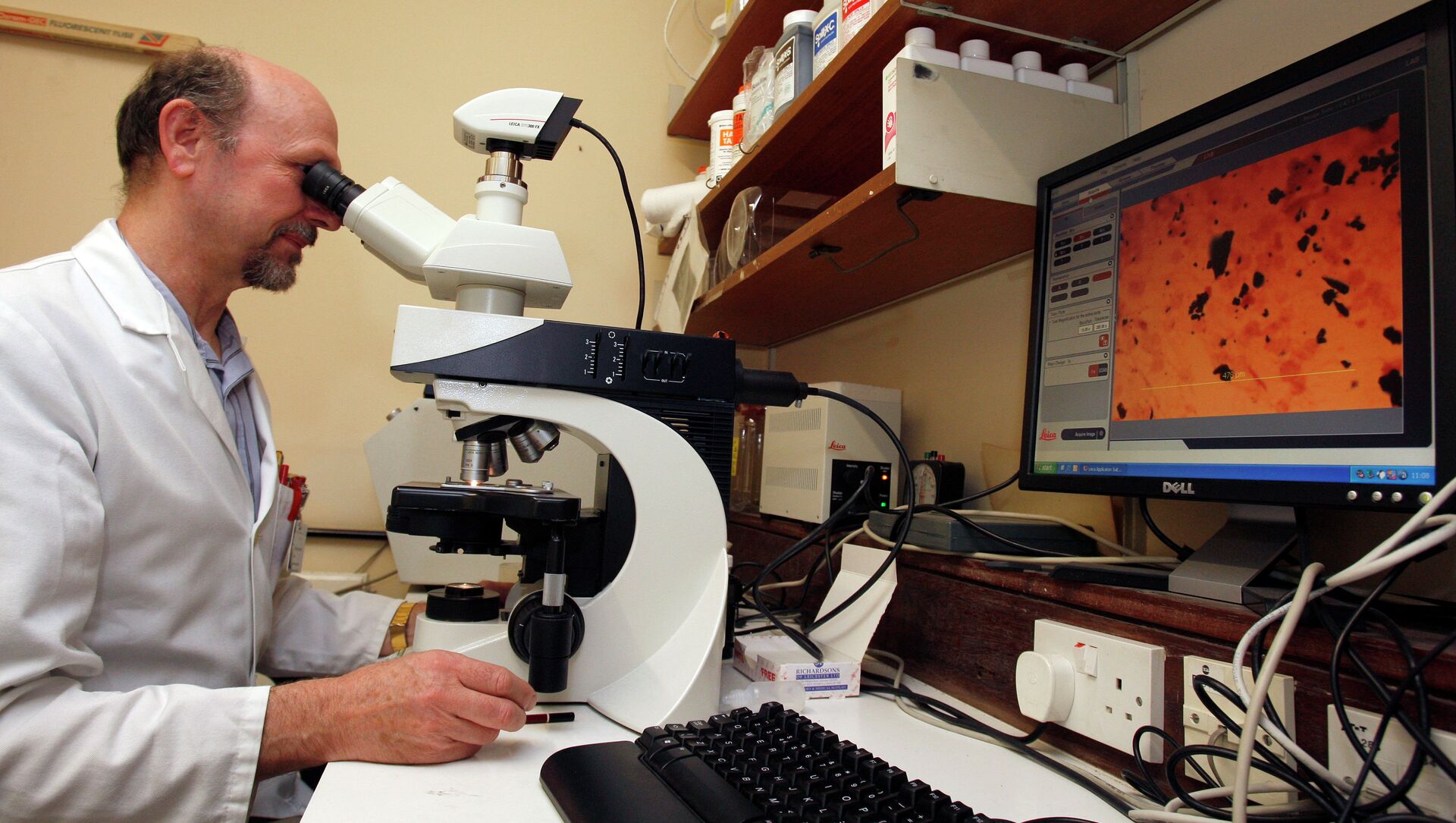https://sputnikglobe.com/20210901/will-this-study-help-the-world-to-prevent-gonorrhoea-doomsday-1083771260.html
Will This Study Help the World to Prevent Gonorrhoea Doomsday?
Will This Study Help the World to Prevent Gonorrhoea Doomsday?
Sputnik International
The sexually transmitted infection (STI) is caused by bacterium Neisseria gonorrhoeae. Those infected experience pain and burning during urination, discharge... 01.09.2021, Sputnik International
2021-09-01T17:39+0000
2021-09-01T17:39+0000
2021-09-01T17:39+0000
science & tech
society
newsfeed
gonorrhea
sexually transmitted diseases
antibiotics
covid-19
coronavirus
https://cdn1.img.sputnikglobe.com/img/102180/44/1021804491_0:37:3888:2236_1920x0_80_0_0_d90cb038f0d02e66386978fbb01710c2.jpg
Australian scientists claim to have made a discovery that could lead to a breakthrough in the treatment of gonorrhea. In recent years, researchers across the world have sounded the alarm about the spread of super gonorrhoea, a strain of the STI that has developed a resistance the to antibiotics used to treat it.According to the World Health Organisation (WHO), 98 million new cases of the infection occur every year and the numbers keep growing due to the spread of super gonorrhoea. Doctors said the coronavirus pandemic has made the situation even worse as the overuse of antibiotics has caused the STI to mutate.WHO has included super gonorrhoea in the list of 12 most concerning antimicrobial-resistant bacterial species. The news prompted doctors to issue a warning of "gonorrhoea doomsday" if scientists don’t find ways to treat it.Researchers from Flinders University and the Australian National University claim to have found out how Neisseria gonorrhoeae evades antibiotics. According to their study, published recently in the journal mBio, the disease uses a protein called MtrD to "pump drugs away" from its cells.
Sputnik International
feedback@sputniknews.com
+74956456601
MIA „Rossiya Segodnya“
2021
News
en_EN
Sputnik International
feedback@sputniknews.com
+74956456601
MIA „Rossiya Segodnya“
Sputnik International
feedback@sputniknews.com
+74956456601
MIA „Rossiya Segodnya“
science & tech, society, newsfeed, gonorrhea, sexually transmitted diseases, antibiotics, covid-19, coronavirus
science & tech, society, newsfeed, gonorrhea, sexually transmitted diseases, antibiotics, covid-19, coronavirus
Will This Study Help the World to Prevent Gonorrhoea Doomsday?
The sexually transmitted infection (STI) is caused by bacterium Neisseria gonorrhoeae. Those infected experience pain and burning during urination, discharge from the penis or vagina, testicular pain, and vaginal bleeding. However, many infected have no symptoms.
Australian scientists claim to have made a discovery that could lead to a breakthrough in the treatment of gonorrhea. In recent years, researchers across the world have sounded the alarm about the spread of super gonorrhoea,
a strain of the STI that has developed a resistance the to antibiotics used to treat it.
According to the World Health Organisation (WHO), 98 million new cases of the infection occur every year and the numbers keep growing due to the spread of super gonorrhoea. Doctors said
the coronavirus pandemic has made the situation even worse as the overuse of antibiotics has caused the STI to mutate.
WHO has included super gonorrhoea in the list of 12 most concerning antimicrobial-resistant bacterial species. The news prompted doctors to issue a warning of "gonorrhoea doomsday" if scientists don’t find ways to treat it.
Researchers from Flinders University and the Australian National University claim to have found out how Neisseria gonorrhoeae evades antibiotics. According to their study, published recently
in the journal mBio, the disease uses a protein called MtrD to "pump drugs away" from its cells.
"In this study, we have focused on the manner by which drugs are pumped out of these cells, which helps the superbug become more resistant and able to survive treatment by multiple drugs", said Melissa Brown, lead author of the study.

